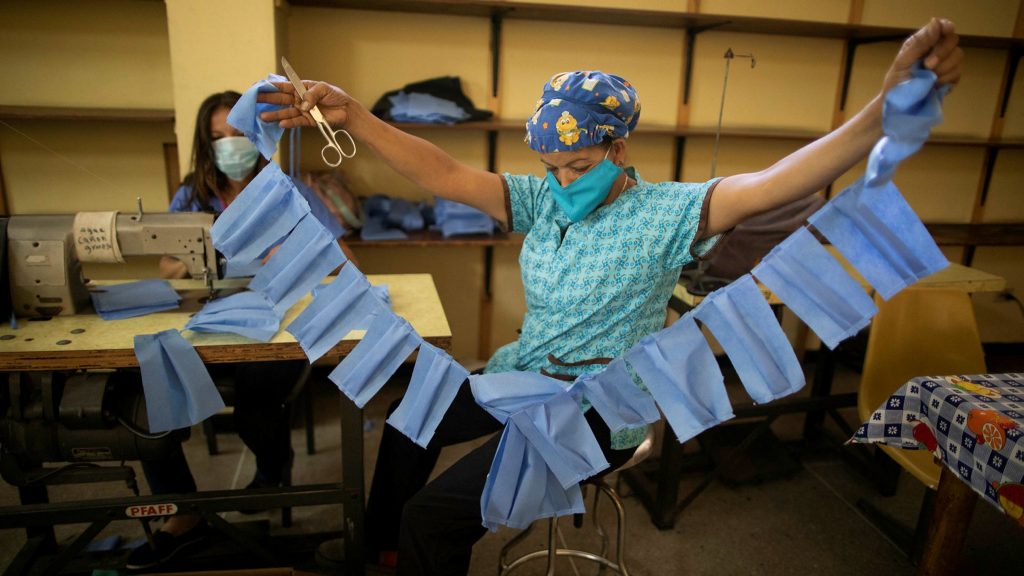RIO DE JANEIRO, BRAZIL – In Venezuela, a general curfew has been in place since March 17th due to the spread of the novel coronavirus SARS-CoV-2. Stores are closed, with the exception of grocery stores, drugstores, and pharmacies.

To mitigate the social consequences of quarantine, the government has suspended commercial and residential rents, decreed special wage supplements and announced that wages for small and medium-sized companies will be paid by the state until September. Furthermore, the firing of employees has been banned.
Along with the quarantine measures, the government also decreed the wearing of protective masks when outside the home. In order to ensure adequate supplies and to curb speculative sales, domestic mask production has been increased.
For instance, a textile manufacturer of the armed forces began producing protective masks and other items for use in hospitals in late March.
The government’s educational program ‘Missión Ribas’, which typically provides supplementary secondary school education, produced 50,000 masks at short notice, which were used to supply staff in canteens at schools and universities.
Local councils and municipalities, community-based organizations at district, village, and city levels are also contributing to the production of masks.
A number of municipalities in the capital Caracas, as well as in other parts of the country, have built up their own production capacities in recent weeks, as reported by the state television network VTV. In several communities more than 10,000 masks produced locally have been distributed to the population.
The active involvement of the local self-government structures should specifically prevent hoarding and the overpriced sale of masks.
“For those who wanted to profit from this problem, this will not be possible with the active involvement of the population, who are producing the masks according to the recommendations of the World Health Organization (WHO),” commented the head of government of the capital district of Greater Caracas, Darío Vivas.
The municipalities are also of major significance in other areas in the current exceptional situation. For instance, the community “El Panal 2021” in the 23 de Enero district of Caracas daily provides hundreds of children, the elderly and particularly vulnerable people with hot meals.
It has two years of experience in running its own canteen for particularly vulnerable residents in the district. According to Ana Marín, a spokesperson for the district organization, a childcare and educational program has also been developed for children whose lessons are canceled due to school closures.
As a doctor from the municipality of “Altos de Lídice” in western Caracas reports to the website venezuelanalysis.com, the community-based organizations also play an important role in ensuring that the quarantine measures can be enforced effectively.
Surveys have been conducted in the past to pinpoint the most vulnerable inhabitants of the district and to assess their needs.
“We know the most vulnerable, the elderly, the people with respiratory disorders,” says community physician Dr. Gutiérrez. This enables targeted home visits to be made and people to be cared for and advised on preventive measures.
According to the government, the number of infections in Venezuela was 189 by last Saturday. Eight infected patients have died. On Sunday, the government of President Nicolás Maduro extended quarantine for a further 30 days.

